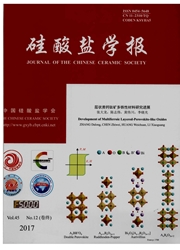

 中文摘要:
中文摘要:
当前国内外对钢渣的利用率不高,急需拓展经济、高效的钢渣利用途径。以钢渣粉为主要胶凝材料组分,用钢渣砂、钢渣石为集料配制混凝土,采用CO2进行养护,研究碳化养护对钢渣混凝土强度和体积稳定性能的影响。结果表明:经碳化养护后,混凝土抗压强度显著提高,碳化14 d强度提高3.2~5.3倍,最高可达65.3 MPa,且碳化时间越长,试件碳化深度越大、pH值越低、碳化程度越高,混凝土强度也越高。碳化过程中生成碳化产物方解石Ca CO3(碳酸钙镁CaxMg(1–x)CO3),使混凝土结构更加致密,吸水率降低。钢渣砂和钢渣石作集料也可被碳化,碳化后钢渣砂、钢渣石混凝土强度高于天然砂、天然石混凝土强度,混凝土体积稳定性得到明显改善。
 英文摘要:
英文摘要:
Currently the utilization ratio of steel-making slag is relatively low, and hence there is a need to seek for new economical ways to use the steel slag. In this study, steel slag concretes were prepared by using ground steel slag powders as partial replacements of Portland cement at different levels and/or using the coarse steel slag directly as aggregates as substitutions of river sands and coarse aggregates. The steel slag concretes were then exposed to CO2 curing to investigate the influences of carbonation on the compressive strength and volume stability of the concretes. The results show that the compressive strengths of steel slag concretes increased significantly after the carbonation curing, which increased by 3.2-5.3 times after 14 d of carbonation and moreover the highest compressive strength reached 65.3 MPa. Prolonging the carbonation curing time facilitated the carbonation reaction, and hence increased the carbonation depths, decreased the pH values and enhanced the strength gain of steel slag concretes. The treatment of CO2 curing decreased the water absorption of concrete specimens due to the microstructure densification as a result of the formation of calcite CaCO3 (calcium magnesium CaxMg1-xCO3). Steel slag aggregates might also be carbonated, which is beneficial for the compressive strength development and the volume stability improvement.
 同期刊论文项目
同期刊论文项目
 同项目期刊论文
同项目期刊论文
 期刊信息
期刊信息
